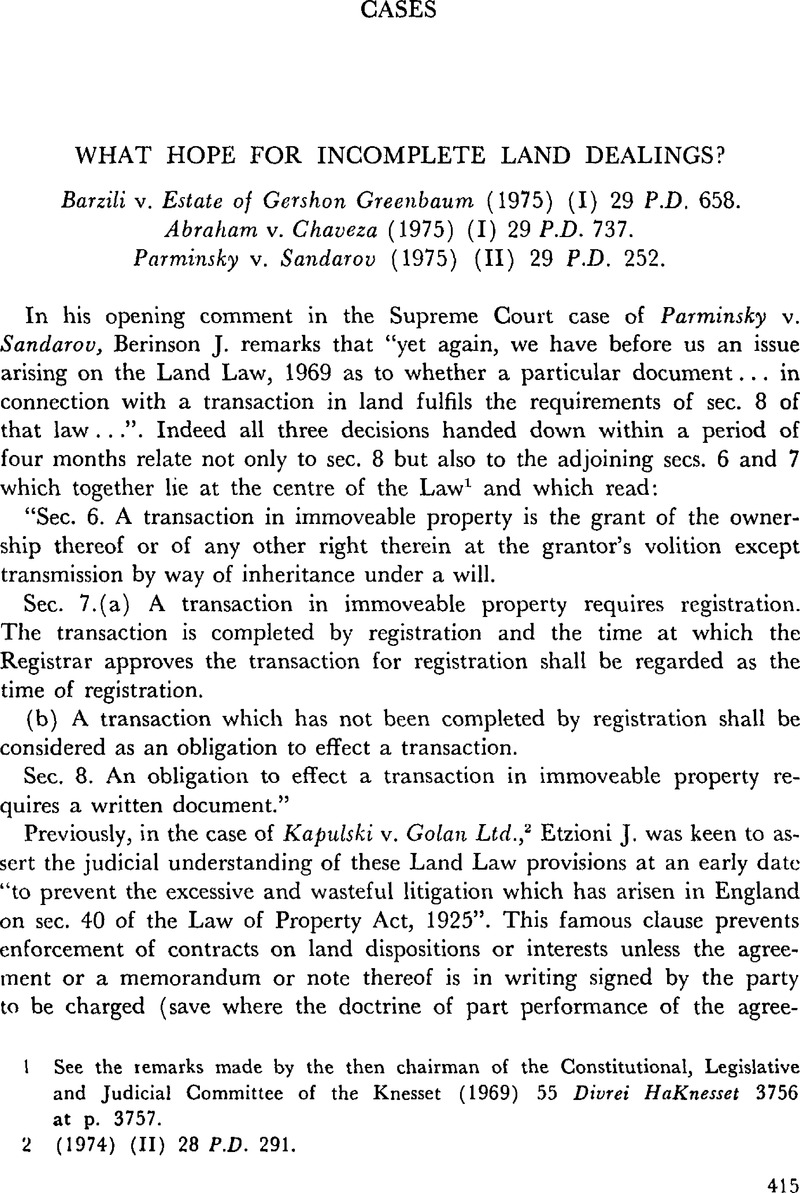Published online by Cambridge University Press: 12 February 2016

1 See the remarks made by the then chairman of the Constitutional, Legislative and Judicial Committee of the Knesset (1969) 55 Divrei HaKnesset 3756 at p. 3757.Google Scholar
2 (1974) (II) 28 P.D. 291.
3 See Prichard, A. M., “An Aspect of Contracts and Their Terms” (1974) 90 L.Q.R. 55.Google Scholar
4 The emphasis on conciseness is notable throughout the Israeli civil law legislation. For a view of this phenomenon see Friedmann, “Development of Israeli Law” (1975) 10 Is.L.R. 550, 551.Google Scholar
5 Thus it is common practice for cautions to be entered on the Land Registers to protect standard form obligations by lending institutions to effect advances in the future.
6 For example “The law regarding the place and standing of the preliminary agreement before a formal contract is based essentially on the intent of the parties”, per Etzioni J. in Abraham. However under the more recent Contracts (General Part) Law, 1973, the test of an effective offer and acceptance is whether there is a definite resolve by the parties thereto (Gmilut Da'at). It remains to be seen if this requirement will affect future decisions.
7 Although the Law of Leases as to Immoveable Property, 1882 does specify an agreement in writing for validity of such transactions even short term.
8 Art. 46, Palestine Order-in-Council 1922; Doukhan-Landau, L. “Equitable Rights to Land” (1970) 26 HaPraklit 101 at 113, 121.Google Scholar
9 See supra n. 2.
10 (1972) (II) 26 P.D. 781. Sec. 15 of the Bill for the Land Law had specified that a Court should not make an order for specific performance unless inter alia “there exists a written agreement, or some other document signed by the defendant attesting to the making of the agreement”; but this was not carried through to the Law.